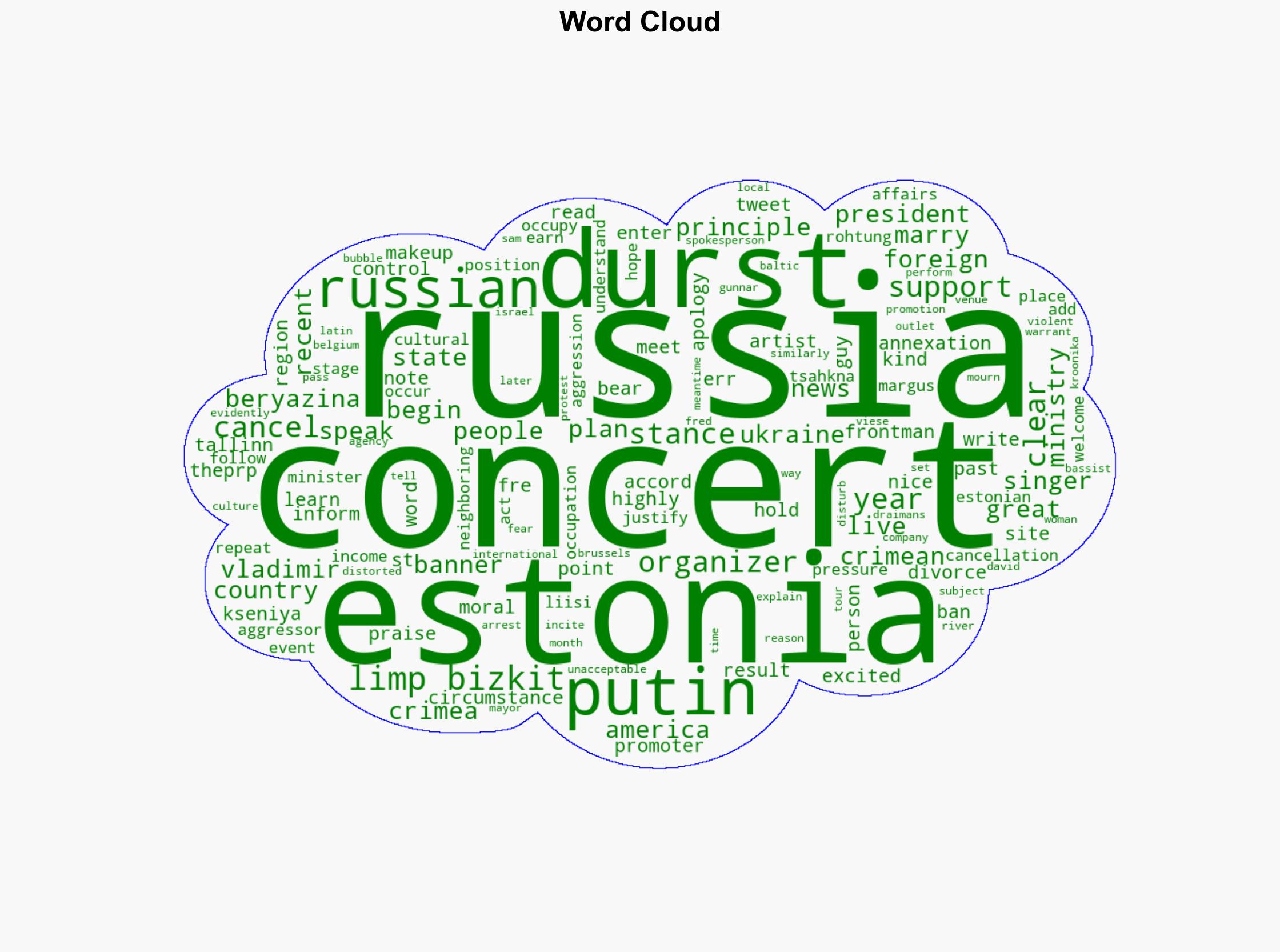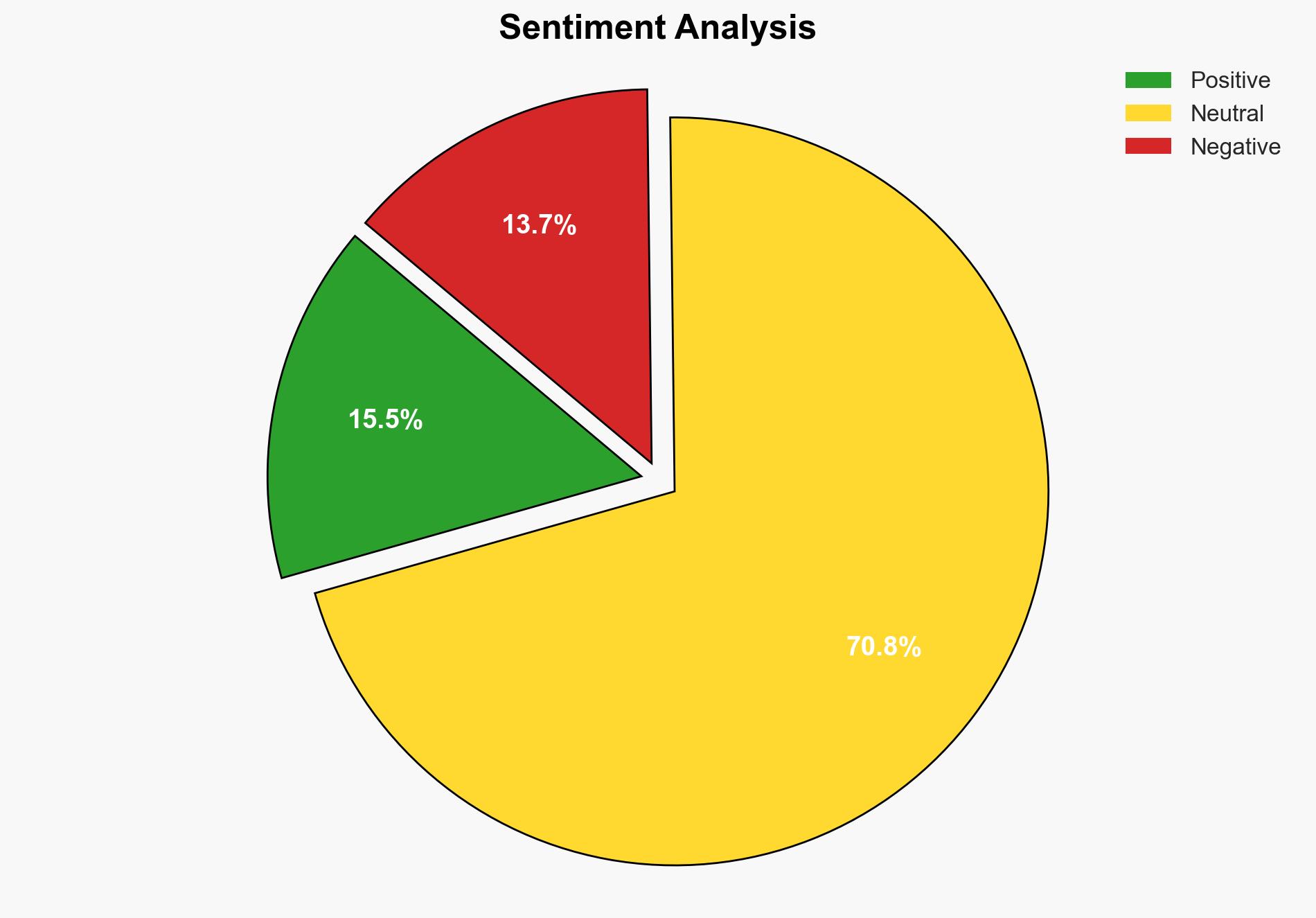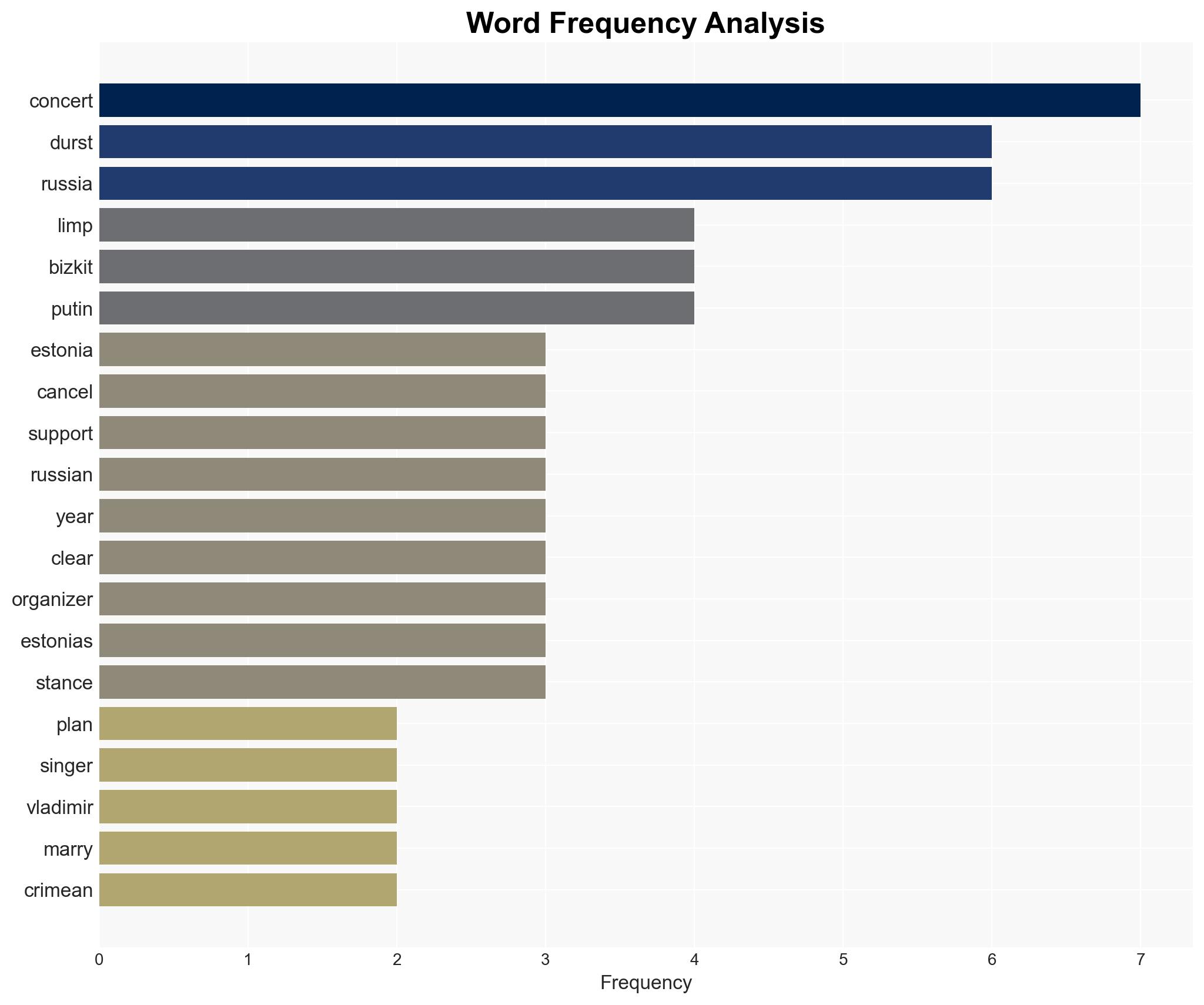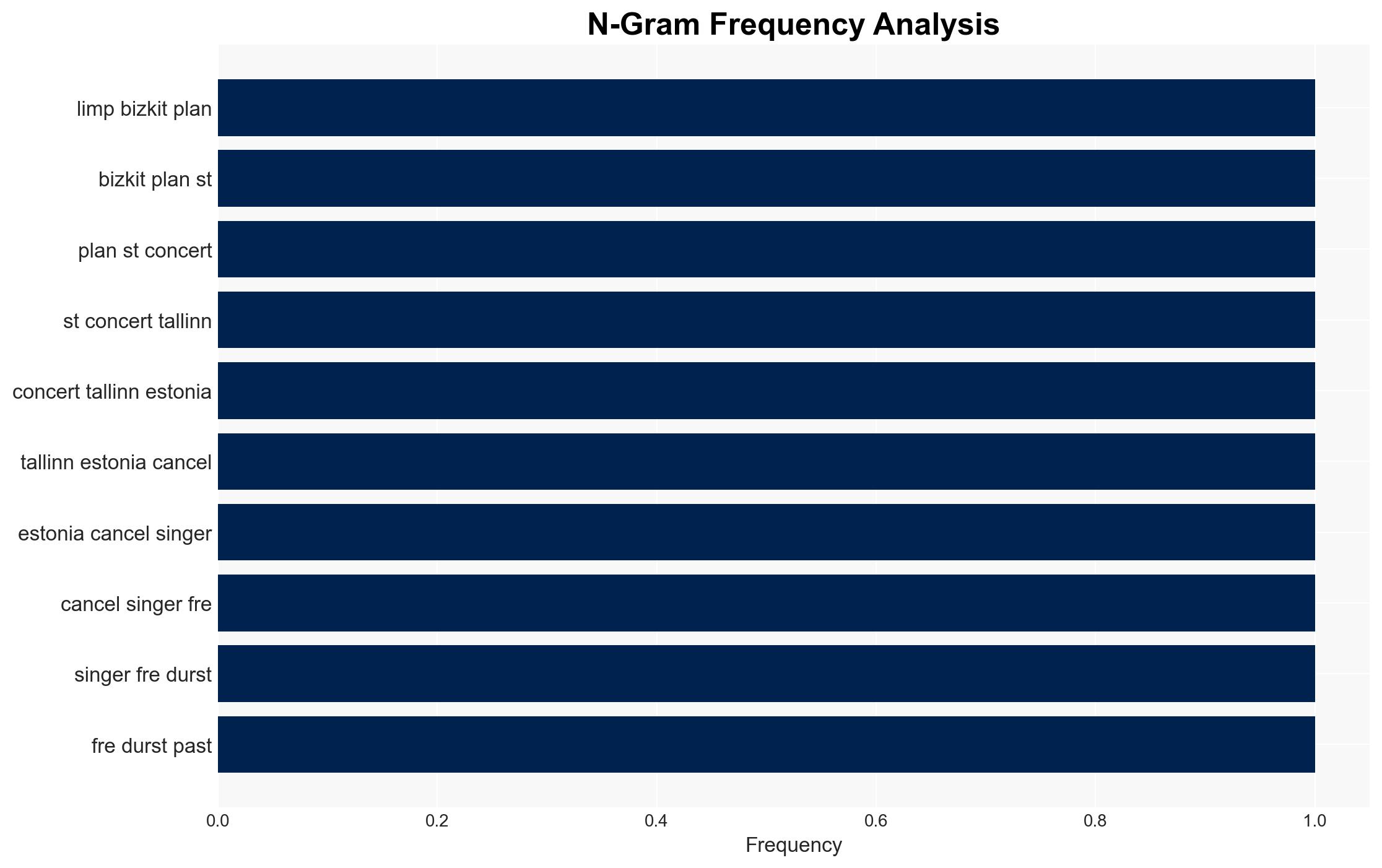Limp Bizkits Estonia Concert Canceled Over Fred Dursts Past Support for Russia and Putin – Consequence.net
Published on: 2025-11-14
AI-powered OSINT brief from verified open sources. Automated NLP signal extraction with human verification. See our Methodology and Why WorldWideWatchers.
Intelligence Report: Limp Bizkits Estonia Concert Canceled Over Fred Dursts Past Support for Russia and Putin – Consequence.net
1. BLUF (Bottom Line Up Front)
With moderate confidence, the cancellation of Limp Bizkit’s concert in Estonia is primarily due to geopolitical tensions and Estonia’s firm stance against Russian aggression. The most supported hypothesis is that Estonia’s decision aligns with its broader foreign policy objectives. It is recommended that cultural event organizers in the region conduct thorough background checks on artists to avoid similar incidents.
2. Competing Hypotheses
Hypothesis 1: The concert cancellation is a direct result of Estonia’s foreign policy stance against Russia and its annexation of Crimea, reflecting a broader geopolitical strategy to isolate Russian influence.
Hypothesis 2: The cancellation is primarily driven by public relations concerns and potential backlash from the Estonian public, who may view Fred Durst’s past support for Russia as unacceptable.
Hypothesis 1 is more likely given Estonia’s clear and consistent policy statements against Russian aggression and the involvement of the Ministry of Foreign Affairs in the cancellation decision.
3. Key Assumptions and Red Flags
Assumptions: It is assumed that Estonia’s foreign policy is consistently applied across cultural events. The decision is assumed to be free from significant external pressure beyond Estonia’s government.
Red Flags: Potential bias in reporting due to geopolitical tensions. The source may exaggerate the influence of public opinion on government decisions.
Deception Indicators: Lack of direct statements from Fred Durst or Limp Bizkit regarding the cancellation could indicate an attempt to downplay the controversy.
4. Implications and Strategic Risks
The cancellation could lead to increased scrutiny of artists’ political affiliations in Estonia and similar regions, potentially escalating cultural and diplomatic tensions. There is a risk of reciprocal actions from Russia, such as banning Estonian artists or events, which could further strain bilateral relations. Additionally, this incident could set a precedent for other countries in the region, influencing their cultural policies.
5. Recommendations and Outlook
- Event organizers should implement a vetting process for artists to assess potential geopolitical risks.
- Estonian authorities should communicate clear guidelines to cultural entities to prevent future incidents.
- Best-case scenario: The incident remains isolated, with no significant diplomatic fallout.
- Worst-case scenario: Escalation of cultural and diplomatic tensions between Estonia and Russia, impacting broader regional stability.
- Most-likely scenario: Increased caution in cultural exchanges, with a temporary impact on Estonia’s cultural diplomacy.
6. Key Individuals and Entities
Fred Durst, Limp Bizkit, Margus Tsahkna (Estonia’s Minister of Foreign Affairs), Liisi Rohtung (Spokesperson for Estonia’s Ministry of Culture), Gunnar Viese (Baltic Live Agency).
7. Thematic Tags
Regional Focus, Regional Focus: Estonia, Russia, Cultural Diplomacy, Geopolitical Tensions
Structured Analytic Techniques Applied
- Causal Layered Analysis (CLA): Analyze events across surface happenings, systems, worldviews, and myths.
- Cross-Impact Simulation: Model ripple effects across neighboring states, conflicts, or economic dependencies.
- Scenario Generation: Explore divergent futures under varying assumptions to identify plausible paths.
Explore more:
Regional Focus Briefs ·
Daily Summary ·
Support us
·





